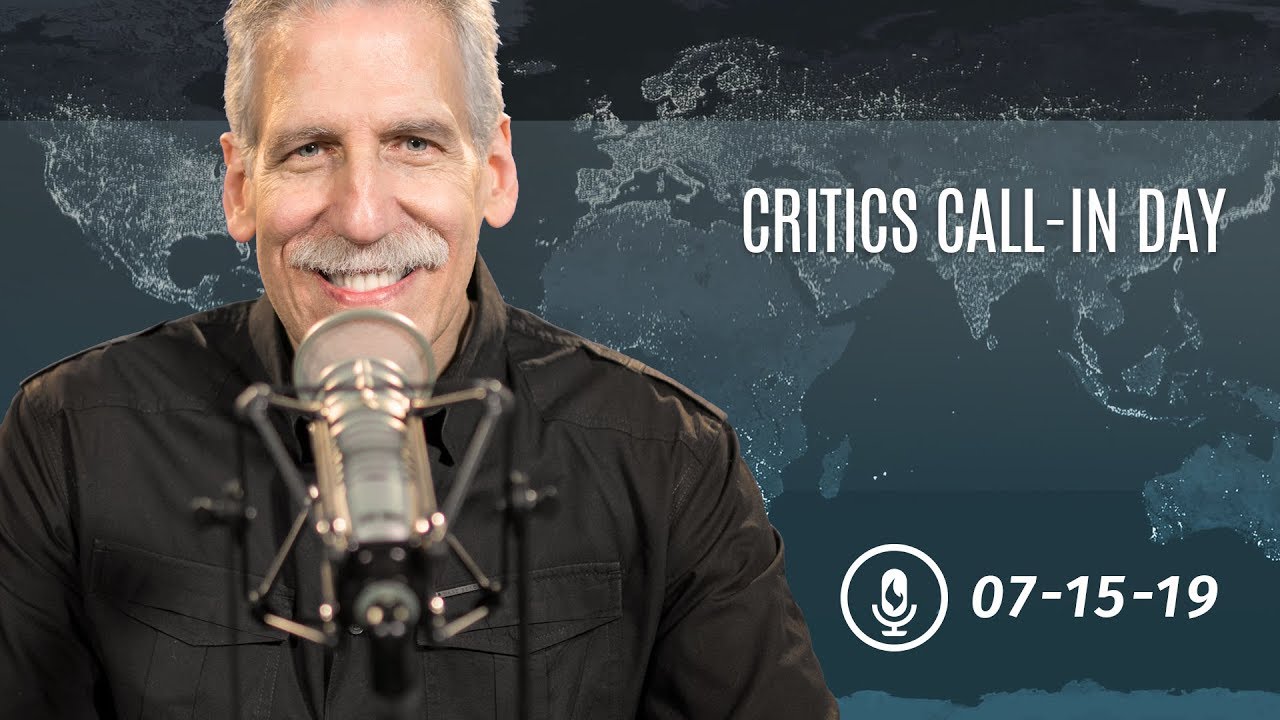The Ideal Christian Life
Are you comfortable or are you ready to give up everything to make Jesus more real to people that desperately need him? Pioneer missionary Griffith John wrote A Voice in the Darkness over 100 years ago, but the challenge he wrote about laying down our lives for the kingdom of God is both timely and powerful.

“He saved others; Himself He cannot save.” Matthew 27:42
What did these men mean to express by this taunt? Did they mean to express a disbelief in the reality of our Lord’s miracles? “He professed to save others; but we have found Him out at last.”
“We know now that it was all sham, all pretension. He cannot save Himself! How could He save others?” Or is there here an admission of the fact that our Lord did save others, and a faint hope expressed that He might come down from the cross and prove Himself to be the very Christ? Did they imagine that, by taunting Him in this way, He might be induced to give this proof of His Messiahship? “He has certainly saved others. Why does He not save Himself? Let Him do so now, and all our doubts will be removed. We will crown Him king, and follow Him wheresoever He may lead.” Whatever their thoughts may have been, we know that our Lord did not gratify their vain curiosity.
In this taunt there is a great truth expressed. It is true that He saved others; it is true also that He could not save Himself. But there is another truth, and this other truth was hidden from their eyes. Why could He not save Himself? The reason was not obvious to them but it is perfectly clear to us. He could not save Himself because He would save others. To deliver others He must surrender Himself; to save others He must sacrifice Himself.
It must be one or the other. He could not do both—save others and save Himself also. And what is true of the Master is true of the disciple. We, the disciples of Jesus Christ, can be saviours to men only in so far as we are willing and ready to sacrifice ourselves on their behalf. Let us then spend a little time in devout meditation on this great truth.
The man who would save others must sacrifice himself.
The man who would save others must sacrifice himself.
“Whom shall I send? Who will go for us?” That is God’s voice to us, and it rests with ourselves as to whether we will respond to the Divine voice or not. But the moment we do respond and say, “Here am I, send me,” that very moment our life must become a life of service and self-sacrifice. Let me give you two or three examples as illustrations of this great truth.
There is Moses in the Old Testament. When the time had come to deliver Israel from the bondage of Egypt, God’s voice came to Moses, saying, “Whom shall I send? Who will go for us?”
It was optional with Moses to go or stay. But the moment he resolved to obey the Divine voice, that very moment his life became a life of service and sacrifice. Having said yes, it was not optional with him as to whether his life should be a life of self-indulgence or self-abnegation. His magnificent position in Egypt had to be renounced; his brilliant prospects of future aggrandisement had to be abandoned; his dire conflict with Pharaoh, and his forty years of suffering with and for his people in that terrible wilderness, followed as a matter of course. He lived for his people, sacrificed everything for his people, and was prepared to die for them at any moment. We know the result. Israel was saved, and God’s purposes were fulfilled. Moses saved others, himself he could not save.
There is Paul in the New Testament. When the time had come to make known to the Gentiles God’s redemptive purposes, a fit agent was needed, and God’s voice came to Paul, saying, “Whom shall I send? Who will go for us?” It rested with Paul to decide as to whether he would or would not respond to the Divine voice; but having responded, it did not rest with him as to whether his life should or should not be a life of service and sacrifice. The moment he said, “Lord, what wilt Thou have me to do?” that moment his life became a life of self-renunciation and suffering. The hunger, the thirst, the fastings, the toil, the stripes, the imprisonments, the anxieties for the churches, and finally his martyrdom followed as a matter of course.
We know the result. The Gospel was preached to the Gentiles, many churches were established in the Roman Empire, and multitudes of men were saved. Paul saved others, himself he could not save.
“Can that be called a sacrifice,” asked Dr. Livingstone, “which is simply paid back as a small part of a great debt owing to God which we can never repay? Say, rather it is a privilege.”
There is David Livingstone. When the time had come to open up the Dark Continent, and to heal “this open sore of the world,” as Dr. Livingstone used to call the slave trade in Africa, God called David Livingstone. It rested with himself as to whether he would or would not obey the Divine call. But the moment he said, “Here am I, send me,” his life became a life of toil and travail on behalf of Africa. The long and exhausting journeys, the burning fever, the hunger and the thirst, and finally the lonely death at Ilala (one of the five districts of Tanzania), all followed as a matter of course. He could not save Africa and save himself too. “I would forget all my cold, hunger, sufferings, and toils, if I could be the means of putting a stop to this cursed traffic.” These were among the last words he ever wrote.

This excerpt is a chapter from Griffith John, A Voice in the Darkness: Lessons from 60 Years in Ancient China (Underground Publishing, 2023).
David Livingstone saved others; himself he could not save.
And there is Jesus Himself. The time had come for the full manifestation of God’s redemptive purpose. The time had come “to make reconciliation for iniquity, and to bring in everlasting righteousness.” The voice of God is heard, saying, “Whom shall I send? Who will go for us?” It rested entirely with the Eternal Son of God as to whether He would respond to that voice. There was no power in the universe to compel Him to leave heaven and come down to this earth to suffer and die. But the moment He did respond, the life of sorrow and suffering, Gethsemane, and the
cross, became inevitable. The life of the world depended upon that great sacrifice. Of Jesus it may be said emphatically, He saved others; Himself He could not save.
Let us now look at this great truth as an all-pervading, all-embracing law.
As a law it pervades the whole of Nature. In Nature, receiving there always means giving here; life there means death here. The animal kingdom lives on the vegetable, and the vegetable lives on the mineral. The mineral must die to itself in order to build up the vegetable, and the vegetable must die to itself in order to build up the animal. The development of vegetable life depends upon the concurrence of certain agents, such as heat, air, moisture, light, and soil. All these must die to themselves if the tree or the plant is to live and grow.
In Nature there must be giving wherever there is receiving; this must be sacrificed if that is to be realised. It is the law of natural instinct. No sooner is the child born than natural instinct steps in, and imposes this law of self-sacrifice on the mother. From this moment, her life becomes a life of holy ministration, wherein, for the sake of the child, she cannot save herself. It is the law of family, social, and political life.
Would you be a father or a son worthy of the name? Would you be a mother or a daughter worthy of the name? Would you be a husband or a wife worthy of the name? Would you be a brother or a sister worthy of the name? Would you be a neighbour worthy of the name? Would you be a statesman worthy of the name? If you would, you must come under this law as the law of your life. It is the law of philanthropy.
A true philanthropist, a lover of mankind, is a man who cannot save himself, because he will save others. Such was Paul, such was Howard, such was Livingstone, and such have been many more whose names I might mention. It is the law of the Divine life.
A true philanthropist, a lover of mankind, is a man who cannot save himself, because he will save others.
It is the life of God. The mother is the queen of the family; and yet, if a true mother, she is the servant of all its members. The father is lord of his household; and yet if a true father, he moves among its members as one that serves. So, the Eternal Father, though Lord of all, is the servant of all. In the truest sense, He is the servant of servants. Out of His infinite fullness, He is ever giving forth life, breath, and all things.
Let us not fall into the delusion of supposing that, because God is omnipotent, the forth-putting of His power costs Him nothing. This is a very common supposition, but nothing can be more erroneous. Even of God Almighty it is absolutely true that He cannot save Himself. He is ever saving others; Himself He cannot save.
It is the law of the Christian life. Service, rising up to self-sacrifice for the good of men, is the ideal Christian life. Every true Christian is a priest, not merely because he stands before God alone, without the intervention of a human mediator to intercede for him, not merely because he offers to God the sacrifice of thanksgiving and praise in daily adoration, but because his life is a life of priestly ministration for others, and that in sacrifices wherein, for the sake of others, he cannot save himself. He presents himself daily to God, on behalf of humanity, in sacrifices which save men from sin and misery. Such is the priesthood of the New Testament and such is the ideal Christian life.
Can you imagine a higher life than this? Can you imagine anything more God-like? It is the Christ-life. It is the noblest life possible to man.
It is emphatically the missionary’s true life. It was the life of Henry Martyn. “Now,” said Henry Martyn, as he set out for India, “let my life burn out for God.” And it did burn out for God. There you have the true missionary.
It was the life of William Johnson, of West Africa. “Had I ten thousand lives,” said William Johnson, “I would willingly offer them up for the sake of one poor African.” There you have the true missionary.
It was the life of Dober. “I determined,” said Dober, the Moravian, “if only one brother would go with me to the West Indies, I would give myself to be a slave, and would tell the slaves as much of the Saviour as I know myself.” There you have the true missionary.
It was the life of Francis Xavier. “Care not for me,” said Xavier; “think of me as dead to bodily comforts. My food, my rest, and my life are to rescue from the granary of Satan the souls for whom God has sent me hither from the ends of the earth. They will destroy me by poison, you say. It is an honour to which a sinner such as I am may not aspire. But this I dare to say, that whatsoever form of torture or death awaits me, I am ready to suffer it ten thousand times for a single soul.” There you have the true missionary.
Quotes of the True Missionary
Henry Martyn said, “Now, let my life burn out for God.”
William Johnson said, “Had I ten thousand lives, I would willingly offer them up for the sake of one poor African.”
Dober – “If only one brother would go with me to the West Indies, I would give myself to be a slave, and would tell the slaves as much of the Saviour as I know myself.”
Francis Xavier – “They will destroy me by poison, you say. It is an honour to which a sinner such as I am may not aspire. But this I dare to say, that whatsoever form of torture or death awaits me, I am ready to suffer it ten thousand times for a single soul.”
It was emphatically the life of the apostle Paul, the greatest missionary the world has ever seen. If there ever has been a life all aflame with the love of Christ, if any life has ever burnt out for God and for humanity, surely that life was the life of the great apostle of the Gentiles.
This, then, is the missionary’s true life. A self-seeking, self-centred, self-indulgent missionary is a pitiable object to behold. He may call himself a missionary, the directors of his society may put him down as one of their missionaries, and speak of him as our able missionary, our highly valued missionary, our well-known missionary, and so on and so on, but in God’s sight he is a contemptible hireling.
Every missionary ought to be a self-sacrificing man, and every missionary worthy of the name is a self-sacrificing man. Still, the true missionary will not look upon himself as a self-sacrificing man, neither will he speak of his work, and the trials in connection with it, as if he looked upon God as his debtor. His sense of indebtedness to his God and Saviour will make it impossible for him to do that. “Can that be called a sacrifice,” asked Dr. Livingstone, “ which is simply paid back as a small part of a great debt owing to God which we can never repay? Say, rather it is a privilege.”
Then the missionary finds that his best work is very poor and imperfect, and that, try as he will, he can never come up to his own ideal. “My doings! my doings!” said John Elliot, the apostle of the Indians, “they have been poor and lean doings. Oh, child of the dust, lie low; it is Christ that hath triumphed.”
Such is the Christian’s true life. Such emphatically is the missionary’s true life. But how far is this life from being fully realised by Christians generally? How far from being fully realised by ministers at home and missionaries abroad? How far from being fully realised by any one of us? Some of us may have lofty ideals as to what we should be in this respect; but is there one among us who has realised his ideal?
Some will sacrifice much in one direction, but not in another. They will sacrifice in the line of their liking. But can that be called a sacrifice which a man does in the line of his liking? Ask them to step out of that line, and you will find that the idea of the Cross has never entered into their conception of the Christian life. For instance, some will talk much and talk eloquently, but are slow to do. They are born preachers, and their Christian life begins and ends in telling others what to do.
To realise the life of which I have been speaking in all its fullness, the sacrifice must be an all-around sacrifice.
Then some will work hard, but are slow to give of their means. And some will give freely, but are slow to work. They will gladly pay others to do the work for them, but they will not touch the burden themselves. Then some will work and give, but will not suffer pain or endure trial. And some will suffer much when called upon to do so, but they will not take trouble. They have no patience for the drudgery and worry inseparably connected with all true work. The pin-pricks torment them, and spoil their best efforts. All that is disagreeable they shirk, and make the agreeable and the congenial the main considerations in their choice of service. To realise the life of which I have been speaking in all its fullness, the sacrifice must be an all-around sacrifice.
We must be prepared to sacrifice in all directions. The element of self-pleasing must be cast out, and the will of God must become to us the one law of our being. What some seek in the Christian life is the salvation of their own souls. This is a worthy aim.
PR
This excerpt is a chapter from Griffith John, A Voice in the Darkness: Lessons from 60 Years in Ancient China (Underground Publishing, 2023). Used with permission.
For more about Underground Publishing, read the PneumaReview.com interview with Bethany Hope about rediscovering the writings of missionaries and Christian pioneers.









Leave a Reply